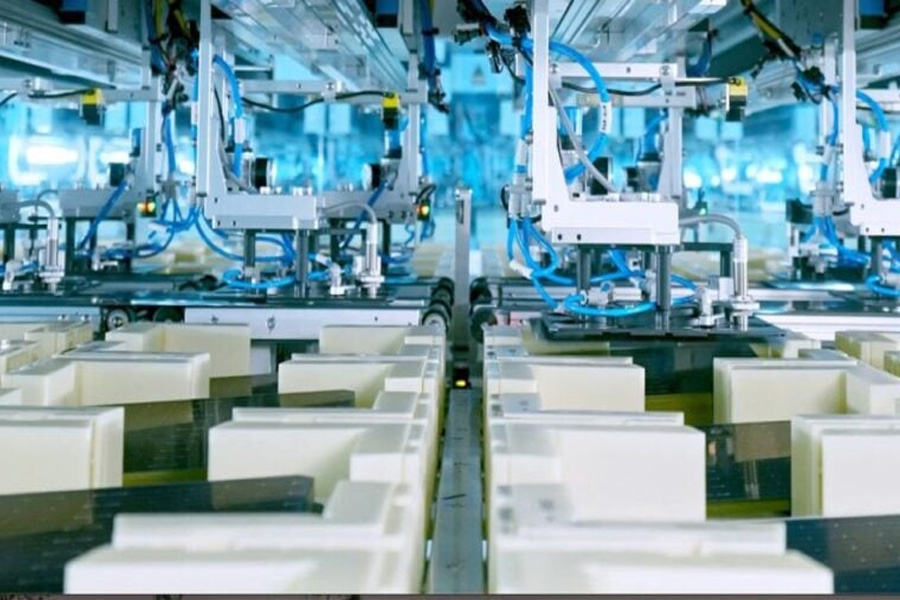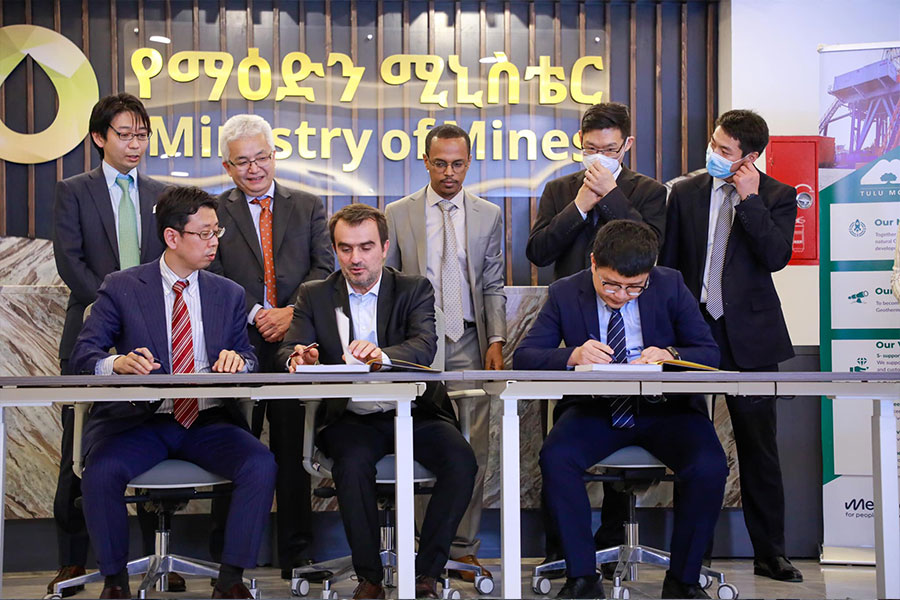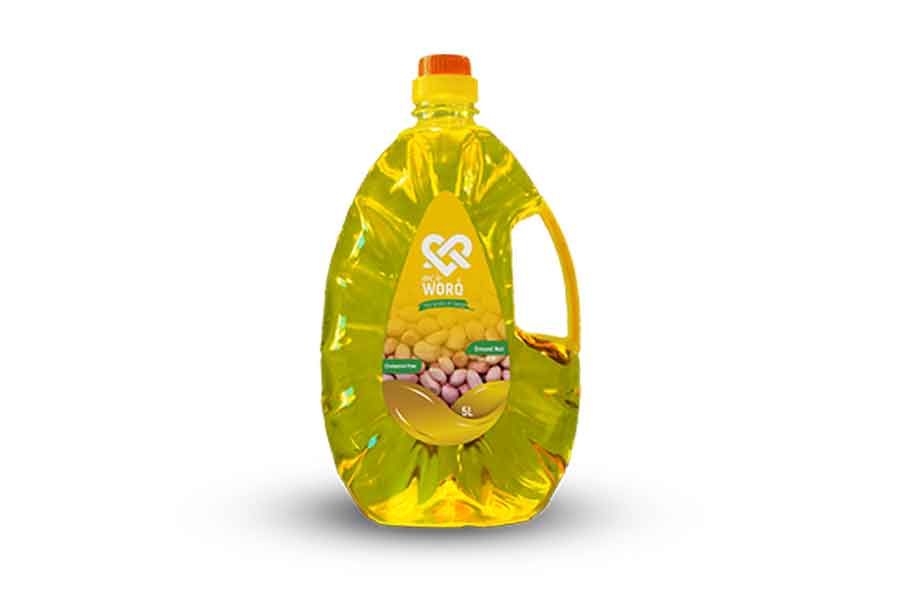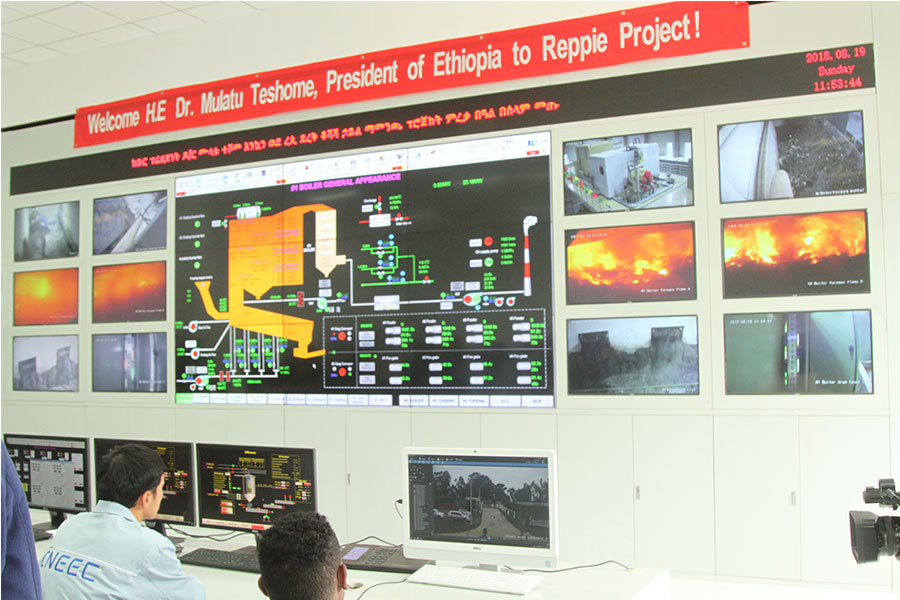
Radar | Jun 24,2023
Derba MIDROC Cement is moving forward with an expansion project to double its current production capacity.
Owned by the business tycoon Mohammed Hussein Al-Amoudi (Sheikh) and his family, Derba Cement is among the largest producers in the country. Built at an investment of 385 million dollars and inaugurated in January 2012, it currently has the capacity to produce 5,600tn of clinker and 7,500tn of cement daily at its plant in Mugher Valley, Oromia Regional State, 70Km north of Addis Abeba.
Its expansion plan is the second largest among the country's cement plants.
National Cement, under the chairmanship of Bizuayehu Tadelle, has partnered with West China Cement Limited to build a cement factory with a production capacity of 10,000tn a day in Ensaro Wereda of the Amhara Regional State, 130Km north of Addis Abeba. The companies have pledged to invest 2.2 billion dollars.
Executives at Derba expect their new project, which consists of a second cement production plant, to cost significantly lower, taking as much as 400 million dollars. However, this is an initial cost projection to be revised upon the completion of a feasibility study. Company officials disclosed that construction is slated to begin in six months and be completed in two and a half years.
Derba Cement was erected with an initial investment of 185 million dollars by Al-Amoudi, with loans from four financial institutions chip in to finance the balance. The International Finance Corporation and the African Development Bank each provided 55 million dollars, while the European Investment Bank and the Development Bank of Ethiopia each advanced 45 million dollars. Derba had serviced its debt to the banks by March 2018.
The company hopes its track record will make it easier to access new loans to finance the expansion project, though it is yet to decide how much to take, Tadesse Kebede, deputy CEO of Derba Cement, told Fortune.
Derba has 134ht of land, enough to accommodate the expansion.
“We initially prepared sufficient space and erected the first plant with the expansion in mind,” said Tadesse.
However, the company plans to acquire additional land for the quarry to source input. The Deputy CEO hopes ongoing coal mining projects in the country will be sufficient to replace imports.
“We've been buying coal from South Africa," Tadesse told Fortune. "We're also using local coal producers, although we can't be fully dependent on them.”
Quality issues and processing problems remain major setbacks.
“We're mixing it with the imports,” said Tadesse.
The expansion is expected to create direct job opportunities for around 500 individuals while availing indirect employment to thousands. The factory currently employs 700 people.
Samuel Halala, director-general of the Chemical & Construction Inputs Industry Development Institute, said communications with the executives of Derba are ongoing on the expansion project.
Derba has already made progress on other fronts.
The company hired the Chinese Sinohydro Construction Ltd last week for 330 million Br for a power expansion project to lay a 25Km transmission line from the Chancho substation to Derba. The current transmission line stretching 50Km from the factory to the Gefersa-Muger power station is flawed and lacks the capacity to meet the power needs of the plant and the planned expansion. The factory needs 94 megavolt-ampere for the two plants.
Derba's expansion plan is driven by high demands for cement in the market. There is an annual 2.6 million tonne gap between current production and the 11 million tonnes the market demands. Three more cement plants – Abay, Berenta, and Lemi – are on the way, giving hope to the authorities that they will ease the country's cement shortage.
There has been a severe shortage of cement for almost two years. Recently, the federal government loosened tight regulation on the cement market to offset surging prices. Though the measure was meant to stabilise the market, the cement price overshot to around 800 Br a quintal, more than double what manufacturers offer at the gate.
For construction industry insiders, this news may not be all that welcome.
Haben Abraha, a construction engineer, suggests the focus should be on improving the 13 factories currently operating in the country.
“Building new factories can be good in creating jobs and business opportunities, which I have no objection with,” said Haben. “But the cause of the problems is not a shortage of factories.”
PUBLISHED ON
Aug 07,2021 [ VOL
22 , NO
1110]

Radar | Jun 24,2023

Radar | Jun 19,2021

Radar | Oct 12,2019

Radar | Oct 19,2024

Fortune News | Apr 02,2022

Radar | Nov 23,2019

Life Matters | Mar 12,2022

Radar | Aug 29,2020

Fortune News | May 29,2021

Fortune News | Mar 23,2019

Dec 22 , 2024 . By TIZITA SHEWAFERAW
Charged with transforming colossal state-owned enterprises into modern and competitiv...

Aug 18 , 2024 . By AKSAH ITALO
Although predictable Yonas Zerihun's job in the ride-hailing service is not immune to...

Jul 28 , 2024 . By TIZITA SHEWAFERAW
Unhabitual, perhaps too many, Samuel Gebreyohannes, 38, used to occasionally enjoy a couple of beers at breakfast. However, he recently swit...

Jul 13 , 2024 . By AKSAH ITALO
Investors who rely on tractors, trucks, and field vehicles for commuting, transporting commodities, and f...

Sep 13 , 2025
At its launch in Nairobi two years ago, the Africa Climate Summit was billed as the f...

Sep 6 , 2025
The dawn of a new year is more than a simple turning of the calendar. It is a moment...

Aug 30 , 2025
For Germans, Otto von Bismarck is first remembered as the architect of a unified nati...

Aug 23 , 2025
Banks have a new obsession. After decades chasing deposits and, more recently, digita...